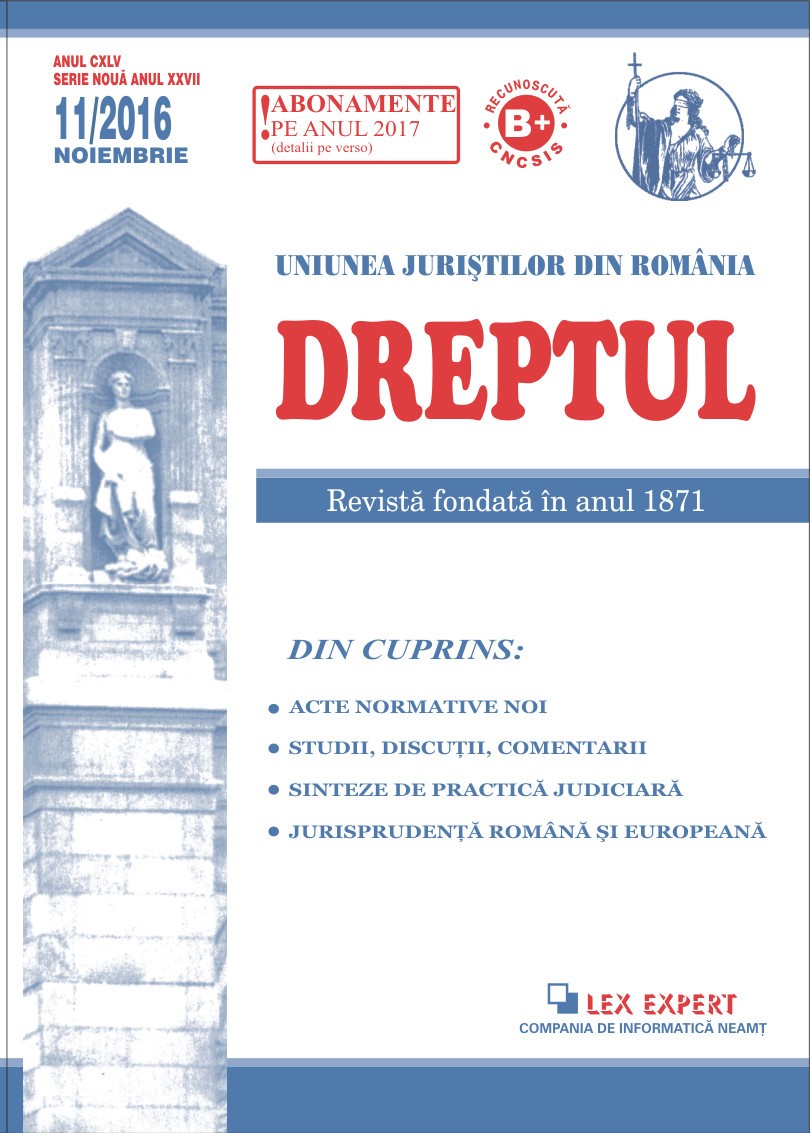Comitetul pentru drepturile economice, sociale și culturale al Organizației Națiunilor Unite: dezvoltări în materia justițiabilității drepturilor economice, sociale și culturale și a universalității, indivizibilității, interacțiunii și interdependenț
Committee on Economic, Social and Cultural Rights of the United Nations Organisation: developments in the matter of justiciability of the economic, social and cultural rights and of universality, indivisibility, interaction and interdependence of all
Author(s): Laura-Maria CrăciuneanSubject(s): Law, Constitution, Jurisprudence
Published by: Uniunea Juriștilor din România
Keywords: economic social and cultural rights; Committee on Economic Social and Cultural Rights; LOIPR; justiciability; progressive implementation; 2030 Sustainable Development Agenda.
Summary/Abstract: 10 December 2016 marks 60 years from the date when the General Assembly of the United Nations Organisation opened for signature (and 50 years from the date when they entered into force) the two international covenants on human rights: International Covenant on civil and political rights and International Covenant on economic, social and cultural rights. These, along with the Universal Declaration of Human Rights and the United Nations Organisation Charter, make up the hard core of the protection of human rights, within the United Nations Organisation (UNO). The 50th anniversary of their entry into force is equally a reason for balance, namely reflection and projection into the future. Thus, in 1966, the design of the two different conventional instruments, corresponding to the two traditional categories of human rights (civil and political rights, on the one hand, and economic, social and cultural rights, on the other hand), was based on their different legal nature, on the East-West ideological divisions, or on the necessity to treat them differently in the process of implementation at state level: the immediate implementation (civil and political rights) v. progressive realization (economic, social and cultural rights). However, the initial situation did not stay within the same parameters, but it gradually evolved. Although initially conceived as „political obligations” in the economic, social and cultural fields and rather left at the discretion of States-Parties, the economic, social and cultural rights have acquired, in time, through the work carried on by the Committee on Economic, Social and Cultural Rights (CESCR), a position that allows them to claim, in the next 15 years, a significant role in the process of implementation of the 2030 Sustainable Development Agenda. In such conditions, in this paper, the author initiates an evaluation of the doctrine of economic, social and cultural rights in the past two and a half decades, as well as of the way in which CESCR has built the „profile” of these rights, in this regard being evaluated two of the work methods used by CESCR, namely: General comments and the new LOIPR procedure – List of Issues Prior to Reporting.
Journal: Revista „Dreptul”
- Issue Year: 2016
- Issue No: 11
- Page Range: 119-145
- Page Count: 27
- Language: Romanian
- Content File-PDF

